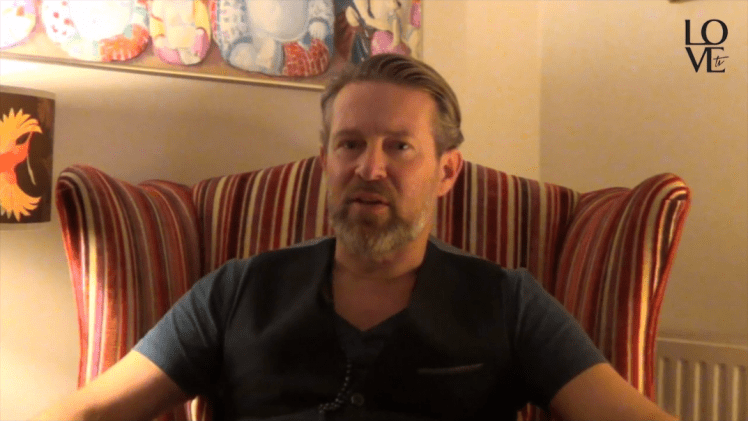Self esteem is a very important component within a healthy relationship. People who have low self esteem tend to wreck their relationships.
People with low self esteem have difficulty believing that they are unconditionally loved and accepted by their partners. They tend to hold back from fully committing themselves in their relationships or from making themselves vulnerable. They tend to engage in other types of behaviors that are unhelpful for relationships (e.g. testing their partners’ love)
The result of low self-esteem tends to be the prevelance of “Lower quality relationships” because their relationships have less love and trust, and more conflict and ambivalence. This is because they are unable to establish healthy boundaries or limits with people.
People with low self-esteem come to relationships with a variety of irrational thoughts, emotions and actions all of which lead people to lose themselves in relationships with others. This loss of self into others leads to a loss of personal internal control. They become victims to being controlled by how others think, feel about and act towards them.
Personal Value
In order to have a healthy relationship, it is required that both parties feel confident about their voice and their personal value. If those components are missing it can take a tremendous toll on ones emotional well-being.
Self-esteem and self-worth
In romantic relationships people often feel most comfortable around those who have a similar level of self esteem as their own. This means subconsciously people with low self-esteem will attract others with low self-esteem.
A person with a low self-esteem often also has low self-worth. Even if they don’t verbalize it, they do not act as if they feel they are good enough to be loved. This lack of self-worth is born from lack of self love. If you don’t truly love and accept yourself, then you cannot truly accept love and acceptance from others.
This lack of self love can lead to a state of emotional impoverishment. This occurs when you are unable to create feelings of love and acceptance within yourself. Instead you look to others as a source of approval. Lack of self love causes you to see people not for who they really are, but for what they can or cannot do for you. In this state, your ability to love will remain emotionally immature and undeveloped because what you have to give in return is not love, but rather your unfulfilled needs.
Low self-esteem creates lack of connection and trust
Low self-esteem destroys relationships because this kind of insecurity creates a disconnect between yourself and your partner. An example may be “Please call me every night at 10pm because other wise, I will worry.” The subtext to this is, “I’m worried that you are going to cheat on me!”
No adult should have to hold themselves accountable to that kind of disrespect. That sort of accountability is for children, not for adults in a relationship.
A person trying to have this type of “control” in a relationship is really suffering from low self-esteem. They need to control the situation because they need to control you. Their need to control you is because they don’t trust that you love them enough to control yourself.
(Which begs the question, if the only way to keep your partner from losing control is this level of hyper-vigilance, then maybe you are in the wrong relationship.)
There comes a point within a relationship that you need to believe that you are with someone who cares about you and respects you enough to not hurt you. When you trust someone, you open yourself up to the possibility that you might get hurt.
What about people who cheat?
Most people who are unfaithful do so because of low self-esteem. Very few people do it if the relationship at home is satisfying. Cheating is a sign that something isfundamental missing within the relationship.
Value and respect
The main reason people are unfaithful is due to a lack of feeling valued and respected by their primary partner. They genuinely believe they are not valued at home. Everyone wishes to be significant and valued, especially from the most important person in their life. When they don’t feel significant, and feel as though they are taken for granted, are being used for convenience or have little value to their partner, they are likely to find someone else who will value them.
Sex and affection
Another reason people cheat is because of lack of love and affection. Love and affection is often withheld by one or both partners when there are layers of resentment beneath the surface in a relationship. Feeling neglected takes over, especially when sex is sporadic. Nothing is worse than being in a relationship and feeling lonely. If one is single, one can always go on a date etc. But if one lives with a partner, yet feels loneliness, then it feels hopeless because there really is no hope without significant change. It affects one’s self esteem, because one feels unwanted, but can not do anything about it. This makes the partners more prone to seek that love and affirmation somewhere else.
Validation and attention
A very important part of being in a relationship is the need for validation and attention. If the closest person to you does not validate you, does not confirm what you mean to them, does not reinforce who you are and wish to be (not what your partner thinks you are and wishes you to be), it can precipitate a feeling of being abandoned and uncared for. Most cheaters do not feel validated or affirmed, neither do they get much attention. They often feel neglected, especially if there is also a lack of love and affection or any real conversation either, mainly accusations and blame. Once we are not validated by those who matter, we begin to seek it elsewhere.
When any of these elements mentioned are missing, self esteem plummets and the person is likely to feel like a failure. It erodes a person and effects everything they do because they are constantly unhappy, anxious and stressed. It is difficult to feel good about one’s self when there is an overwhelming number of unmet needs missing from one’s life.
Personal confidence
The unfaithful partner feels a tremendous loss of personal confidence. It has a domino effect on everything else. Many unfaithful partners suffer in silence for a while, feeling low and hurt, until they feel compelled to do something about it in order to boost their confidence and improve their esteem.
Relationship in a rutt
There are many relationships where partners have settled into a rut, taking their spouses for granted, living in resentment and hurt, withholding affirmation and attention, value and respect. Those are the kinds of relationship that are most vulnerable to infidelity because living with someone else should enhance our happiness, not make us feel worse.
People with low self-esteem need to have “perfect” relationships and compete for control in order to make their relationship be the way they think it should be. This results in healthy relationships deteriorating. Eventually the relationship partner finds themselves in empty, hallow, phony, relationships with deep resentments and hurts. The partners have given so much to the relationship, they have nothing left of themselves to keep the relationships alive.
Here are symptoms of low self-esteem:
- Not spending very much time living in the present: If you worry about the future or spend too much time reflecting on the past mistakes, the bottom line is that you are not living in the present.
- Always wanting something you don’t have or something that’s out of reach: When someone has a great dissatisfaction with the trajectory of their life, or their lifestyle and it seems that what they want is always just out of reach, and that situation doesn’t ever change, self-esteem is probably the cause.
- Avoiding real intimacy: People who have low self-esteem have problems opening to and connecting with others on a deep level. Some don’t even recognize that the bonds they share are shallow and superficial until they get involved with someone else, on a much deeper level. They feel that if the other person finds out who they truly are, all love will be lost. They are afraid that opening up will result in getting hurt. Some people have entire relationships built on walls and avoiding intimacy. If you are avoiding real intimacy for whatever reason, take it as a sign that you need to look at how you are feeling about yourself.
- Busyness: The business of being busy, always keeping busy so you don’t have to look honestly at your underlying problems. Often times people will keep themselves busy so that they don’t have deal with feelings that they keep hidden. If you are a “do-er” and are constantly busy but not truly happy, start looking at the areas of your life that aren’t quite together. That will give you a place to start in finding out what you are trying to suppress with your “busyness.”
- Acting destructively towards yourself and possibly to others such as being overly critical or self-sabotaging behaviors. People who are overly critical tend to project feelings about themselves falsely onto others. An overly critical attitude comes from their feelings of inadequacy and fear of making a mistake. Unaware that they are more critical than other people, they focus on the negative rather than the positive and give more weight to the negative in both themselves and others.
- Those with low self-esteem tend to choose the wrong partners, and remain in relationships that continue to be unsatisfying despite many red flags that it is time to end it. They fear change, they fear being alone, and they fear their own ability to make sound decisions.
- Motivated by fear of “doing something wrong” and receiving negative feedback, those who have low self esteem seemingly need to narrow their choices to be safe from erring. Consequently, they grab hold of the notion that there is only one right way to do things—usually the way they were taught. Once the “right” way is recognized, they feel they can then remain safe from ridicule, rejection, disapproval, or from making a mistake in judgment that might have other negative consequences. With only one “right” way every other position is then “wrong,” (black versus white). That means that in order to be right, their partner must always be wrong. Once they are convinced they are right, they become closed to considering a different viewpoints, unable to think objectively that any other way may be acceptable. They become rigid in their thinking and judgmental of others who think, feel, or act differently. They basically don’t develop the ability and freedom to look at issues and consider the varying merits before choosing a side.
- Doubting their ability to make good decisions, these low self esteem sufferers are often overly submissive to—and blindly follow others without sizing up the situation on their own. Such blind allegiance without studying or assessing the situation can lead people to give control of their lives to others who don’t have their best interest at heart, whose views are questionable, or whose views are radical in one direction or another. Through recovery, people become stronger and more confident in their own ability to make decisions and develop the freedom to feel they have the right to do so.
- People with low self-esteem can be very self-focused, only viewing and thinking of what goes on around them on the basis of their own needs and wants. They find it difficult to put themselves in the shoes of others or to recognize how their behavioraffects others. They are often aloof, appear to be very selfish, even narcissistic,though they are motivated out of feelings of inadequacy, selfishness and grandiosity.
To maintain healthy intimacy in your relationships, you need to establish healthy intellectual, emotional and physical boundaries with your partners.
Characteristics of a Healthy Intimate Relationship
The goal in an intimate relationship is to feel calm, centered and focused. The intimacy needs to be safe, supportive, respectful, nonpunitive and peaceful. You feel taken cared for and nurtured, unconditionally accepted and loved just for existing and being alive. You feel part of something. You are able to forgive and be forgiven without revenge or reminders of past offenses.
You experience being free to be who you are rather than who you think you need to be for the other. This relationship makes you free from “analysis paralysis” where you need to analyze every detail of what goes on in it. Healthy intimate relationships support your individuality and encourage personal growth. This relationship does not result in you or your relationship partner becoming emotionally, physically or intellectually dependent on one another.
You know you are in a healthy, intimate relationship when you have created an environment where:
- I can be me.
- You can be you.
- We can be us.
- I can grow.
- You can grow.
- We can grow together.
Simple!
A healthy relationship frees you to be yourself while acquiring self-knowledge is a lifelong process. Even if you do not have a strong sense of who you are, you do know when you are NOT being allowed the freedom to be yourself. You know when you are feeling judged or when you are worried about making a mistake. The freedom to be yourself means that your partner will neither interfere with nor judge your process of being and becoming.
In return, you offer your partner the same freedom that you are ask for yourself. And you accept your partner as he is. You do not get caught up in your fantasy of who you want him to be. You focus on who that person really is.
Curated by Erbe
Original Article








 Watch as Mike Lousada talks about Sensations, Feelings and Emotions.
Watch as Mike Lousada talks about Sensations, Feelings and Emotions.